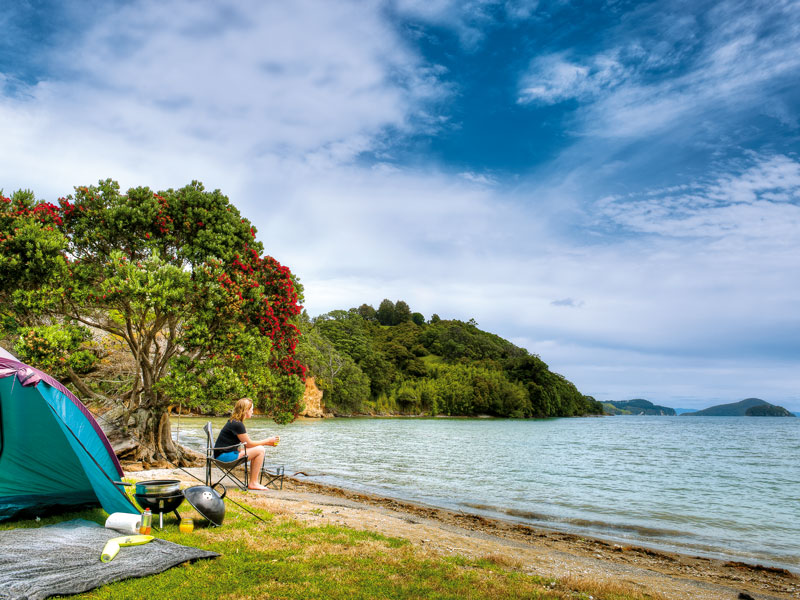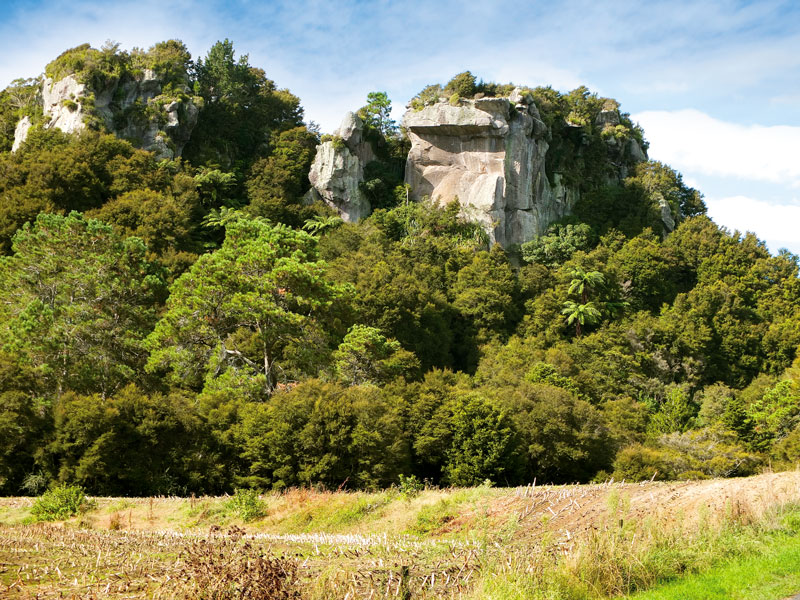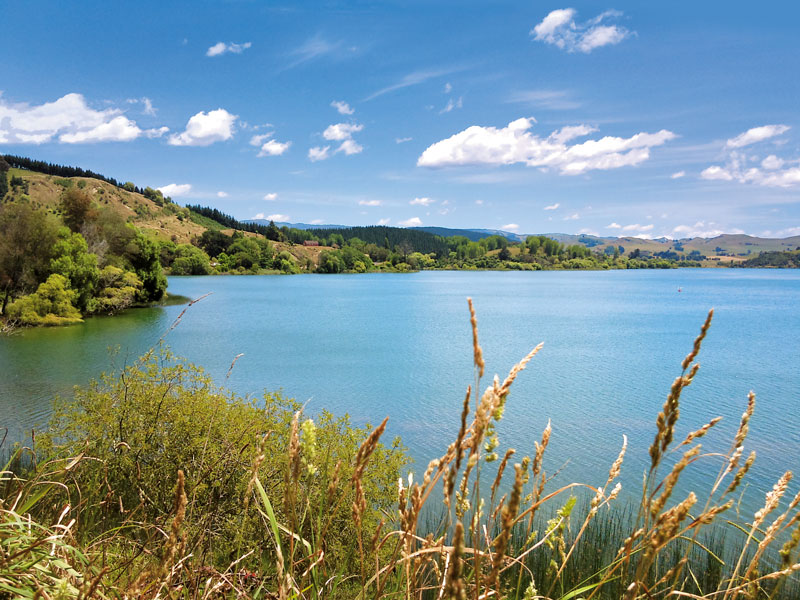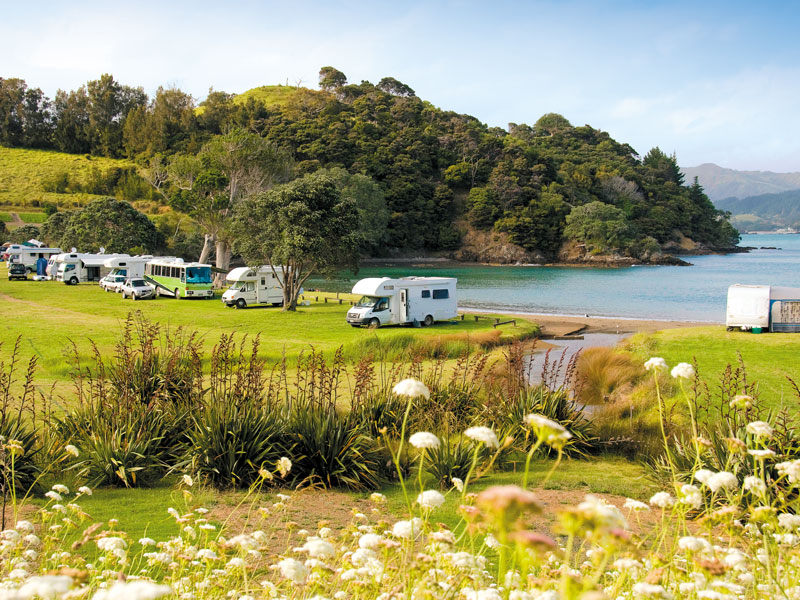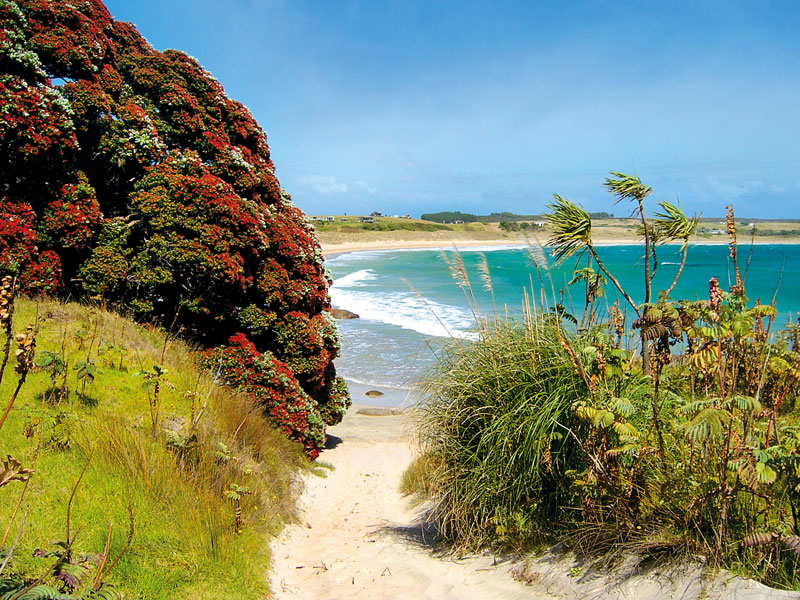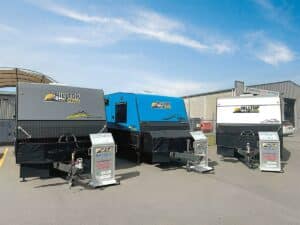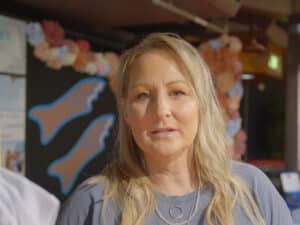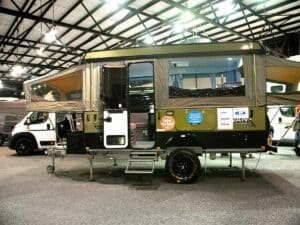Way back in the day, my first trip around New Zealand fitted precisely into the word ‘freedom’. Unleashed from our academic studies, my then-husband and I tooled around the country in a Volkswagon Beetle.
We carried a small ex-army pup tent, which we pitched wherever we landed - by river, sea, the side of the road or in the bush. We had an ex-army folding spade to dig a hole for toileting and organic scraps and filled it in when we left.
I seem to remember we ate nothing but porridge, beans, rice, and any fish we caught along the way. I doubt I’ve ever felt happier. The numbers of RV travellers and campers has exploded in the past 10 years, which has meant, quite rightly, that RVers and campers can no longer roam the country and set up camp wherever they want.
It has to be this way for everyone to get along. We ‘spade-diggers’ had to go. So freedom camping these days is not entirely true to its name. In many people’s minds, it has more to do with ‘free’ than with ‘freedom’.
To find out the meaning from those who know, I asked Bruce Stanger, the New Zealand Motor Caravan Association (NZMCA) president. “We call it independent overnight parking,” he said. “This is when a person chooses to park and sleep in a caravan, motorhome or tent in an area they are permitted to do so.
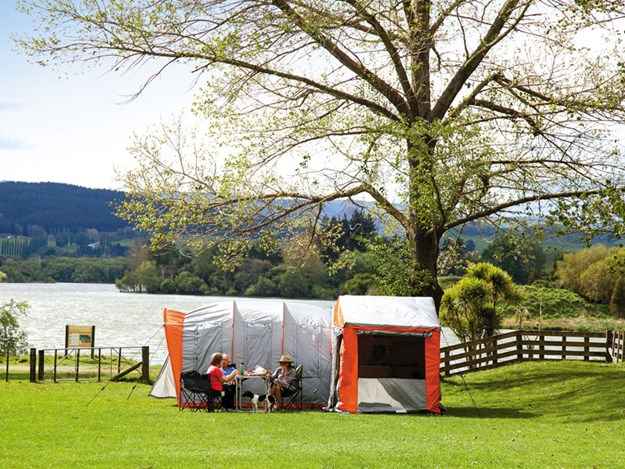 |
Lake Tūtira |
The association believes that where no facilities are available, camping should be restricted to CSC (certified self-contained) vehicles.” The 100 Per Cent Pure New Zealand website prefers the term ‘responsible freedom camping’, referring to sites where there are minimal or no facilities.
It cites that freedom camping is on public land that is not a recognised camping ground
or holiday park. These definitions are not exactly aligned, but I get the drift. And however freedom camping is defined, the most obvious message is that travellers are no longer allowed to camp wherever they like.
The council of each district has bylaws about where people can hunker down for the night and where they can’t. Fines are given to anyone who transgresses; camping or preparing to camp in the wrong place results in an instant fine of $200.
It’s the same for dumping rubbish or waste, having no toilet when required to have one, or causing any damage. Hopefully, the threat of a fine that size is enough to be a deterrent. Despite these rulings, we still have many options to stay in some wonderful places around our homeland without draining the budget.
But without a CSC, the options for freedom camping are limited. The certificate requires a vehicle to have a toilet, freshwater storage, water storage for drinkable water and a rubbish bin with a lid. The owners must be able to live in it for three days without replenishing water or dumping waste.
On that original expedition back in the 1970s, we would have failed on all counts. I read somewhere that there are more than 500 ‘responsible freedom camping’ or ‘independent overnight parking’ locations in New Zealand, all with different rules.
I’m not sure exactly what this figure takes into account as many places might fall into a freedom-camping category. Responsible CSC vehicles are welcomed to stay for varying lengths of time at some golf clubs, regional parks, car parks, reserves, hotel and club parks, beaches, supermarkets and occasionally on farms or wineries.
Not all parking is gratis as many places ask for a small donation or charge for power if there is any. For this article, however, I am restricting the term ‘freedom’ to what the NZMCA calls ‘the most cherished aspect of the motorhome and caravan lifestyle’, namely camping or overnighting on public land where there are conditions but little charge, if any at all.
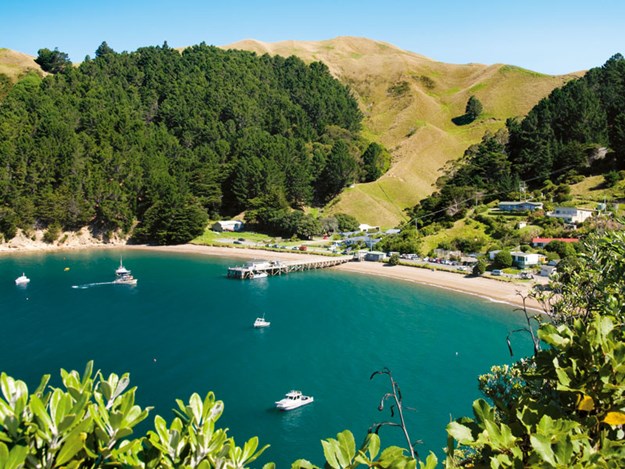 |
French Pass Village Camp Ground hidden on the right |
In this, I include most public conservation land provided by DOC and regional reserves and car parks provided by councils. Freedom-camping locations on public land offer some wonderful experiences, not just because they are easy on the pocket but because they can also be in spots next to rivers, lakes or the sea, with millionaire views.
Some are also found in car parks in urban areas and close to facilities and people, where visitors, if only for a short time, feel part of a community. We haven’t always been as spoilt for choice as we are now. When, in 1999, Bill and I first headed off with a caravan towed by a Nissan Patrol on a two- year tour of New Zealand, we discovered that a nomadic lifestyle had its image problems.
Sensing a whiff of penury and deceit, many councils had the attitude that motorhomers and caravanners were cadgers, and so they were not as warmly welcomed as RVers are today. For example, a few days after we’d began our caravan odyssey, it became apparent that our social status had altered when we asked a campground manager for the best 10-day deal she could offer.
She threw us a withering glance. “That’s the trouble with the likes of you,” she muttered, “always on the scrounge.” There has been a big shift in perception since then and much of it due to the NZMCA and people pointing out that the revenue generated by ‘scroungers’ are no mean pickings.
It took some convincing but now most councils, tourism operators and retailers realise, or are coming to realise, that not only do New Zealand owners of RVs boost the local economy when they visit, they make up a sizeable chunk of domestic tourists.
And the domestic tourism market overall far outperforms the international one. As well, domestic RVers continue to travel around New Zealand in the off-season, and in some cases, they are largely responsible for keeping rural communities ticking over during those months.
As these facts hit home, RV nomads are more frequently not only welcomed but encouraged to stay. After the change of the Freedom Camping Act 2011, which states that free camping is anywhere on public land that is not restricted or prohibited, councils went into action.
Now each district makes it clear, with new signage, where those places are. Conversely, this seems to have resulted in more places where responsible, CSC RVers can freedom camp. It is understood that while freedom camping can often be free of charge, the price that is tagged to the privilege is responsibility.
I have stayed in many freedom-camping spots, and it’s impossible to compare apples with apples but the following are some I remember with clarity. At the tip of the North Island, 16 kilometres along a gravel road to the east, the scenery opens up like an oyster shell to reveal the sprawling DOC campground of Spirits Bay (Kapowairua), set close to a long coral-coloured beach that disappears into the distance.
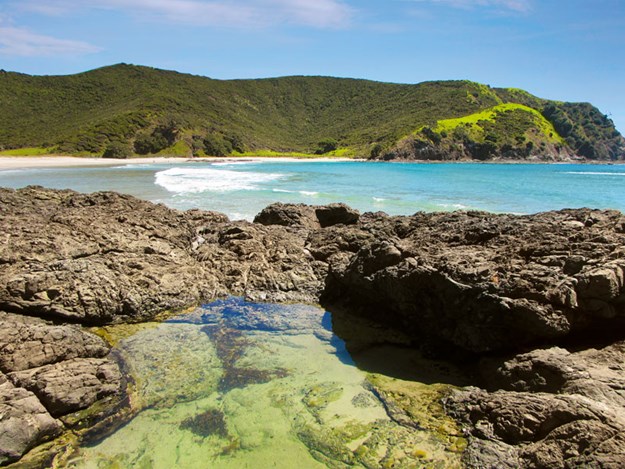 |
Tāpotupotu Bay |
Tāpotupotu Bay, 3km south of Cape Reinga at the base of a steep hill, is also a DOC camp and, in my view, one of the loveliest beachside spots in the country. It’s on a flat grassed area with a tidal inlet that worms its way into the mangroves. On either end of the bay, high mānuka-covered hills sweep skyward.
There are also some great freedom-camping locations around the East Cape for CSC vehicles. They are only available for freedom camping between April to September (outside the daylight-saving period). The rest of the year they operate as summer camps. These designated areas are at Tolaga Bay, Kaiaua, and Tokomaru Bay.
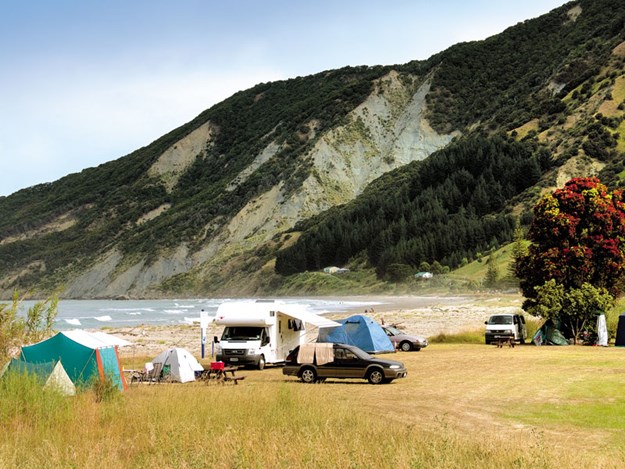 |
Tokomaru Bay |
There is also year-round freedom camping in Gisborne itself at Marina Park, Kaitī Beach and Makarori Beach. One of my favoured freedom-camping reserves is Jones Landing Reserve on the banks of Arapuni Dam, 30km from Putāruru.
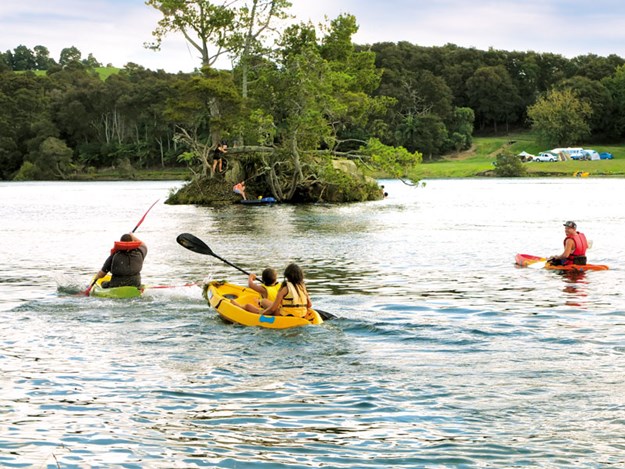 |
Jones landing |
It is set on the edge of a silky stretch of water surrounded by high rocky cliffs that loom up like ancient temples. Fronds of toitoi and graceful ferns lean over the banks, and taller trees are mirrored in the still dark water.
Lake Arapuni is one of the man-made lakes from hydro damming on the Waikato River. On the north-west side of the lake are two more wonderful lakeside freedom-camping sites set among kānuka and oak trees - Bulmers Landing and Arapuni Landing - and on the west bank at its southern end is the appealing Arohena DOC camp.
Camping spots other readers have enjoyed
Doc camps
- French Pass, Nelson
- Port Jackson Recreational Reserve, Coromandel
- Peel Forest, South Canterbury
- Tōtaranui, Golden Bay
- Kauaeranga Valley
- Campgrounds, Thames
- Pūriri Bay (Whangaruru North Head), Northland
- Mavora Lakes, Te Anau
- Mātai Bay Recreational
- Reserve, Northland
Freedom camping reserves
- Te Mata Point Reserve, Thames
- Lake Camp, Lake Clearwater, Ashburton
- Alex McKenzie Arboretum, Ōtautau, Southland
- Ray’s Rest, Miranda Coast
- Egans Park Reserve, Coromandel
- The Pines, Lake Pūkakī,
- Mackenzie Basin
- Gunns Bush, Waimate
- Kairākau Beach Reserve, Waipawa, Hawke’s Bay
- Moanaroa Reserve, Karapiro, Waikato
- Cooney Reserve, Omokoroa, Coromandel

